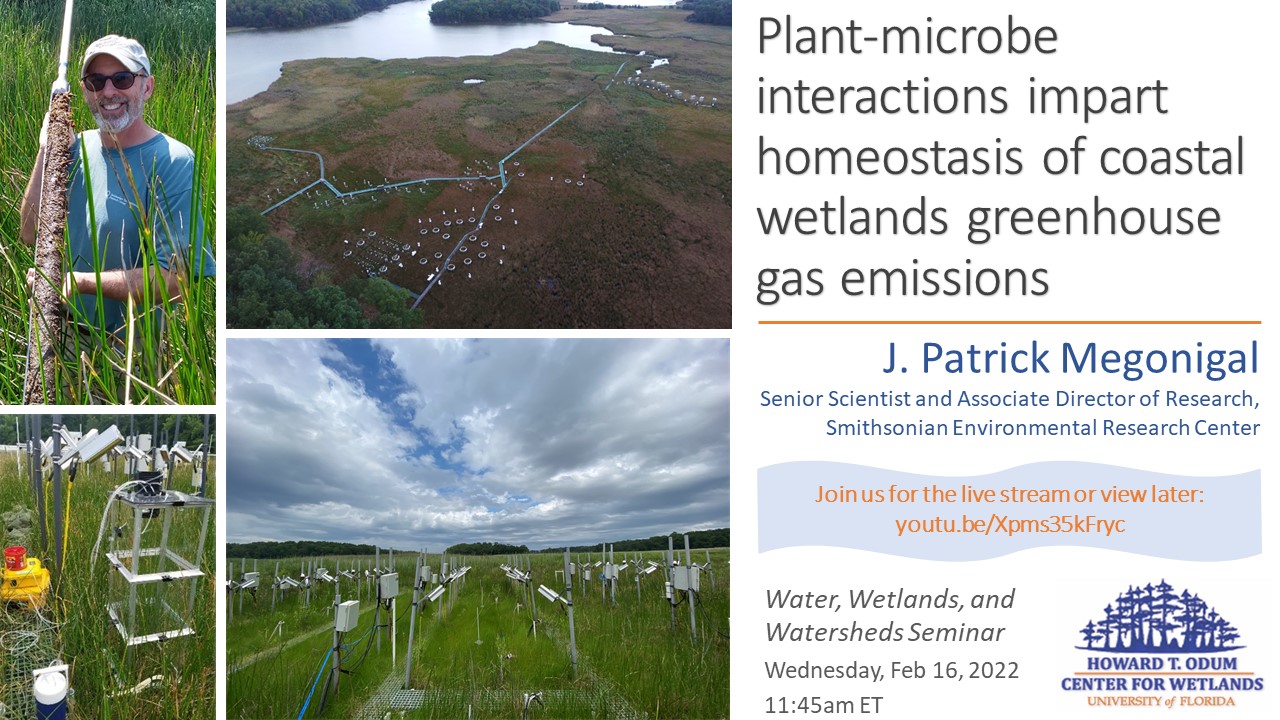Plant-microbe interactions impart homeostasis of coastal wetland greenhouse gas emissions
Patrick Megonigal, Senior Scientist and Associate Director of Research, Smithsonian Environmental Research Center
Join us for the live stream Feb 16, 11:45am EST: youtu.be/Xpms35kFryc
(Please visit our youtube channel main page for the stream if there are any issues with the direct link.)
ABSTRACT
Terrestrial ecosystems regulate climate by simultaneously removing and adding greenhouse gases to the atmosphere. Plants remove carbon dioxide, a portion of which is stored as wood or soil organic matter for long periods of time. Microorganisms return greenhouse gases to the atmosphere as carbon dioxide or methane. The balance of these processes determines whether ecosystems cool or warm the planet as they respond to rising carbon dioxide, warming, novel plant species, and sea level rise. The Global Change Research Wetland is a facility at the Smithsonian Environmental Research Center dedicated to understanding plant and microbial responses to climate change using a Chesapeake Bay tidal marsh as an experimental platform. I will present examples of plant-microbe interactions that tend to cancel one another in terms of greenhouse gas emissions, effectively favoring homeostasis that neither mitigates nor contributes to ecosystem feedbacks on climate. In one example increased plant productivity led to increased microbial decomposition of soil organic matter. In the other increased plant productivity led to higher methane emissions. Such trade-offs are fundamental constraints on greenhouse gas balances that require further research to improve Earth System models.
Bio
J. Patrick Megonigal is Associate Director of Research at the Smithsonian Environmental Research Center. He received BS and MS degrees from Old Dominion University, and a PhD from Duke University. His research is focused on plant-microbe interactions and biogeochemical cycling, particularly as it relates to carbon and greenhouse gas cycling in wetlands and forests, and consequences for the stability of coastal wetlands responding to accelerated sea level rise. He has authored over 150 peer-reviewed publications and is an elected Fellow of the Soil Science Society of America (SSSA), the Ecological Society of America, and the Society of Wetland Scientists.
POSTCARD

